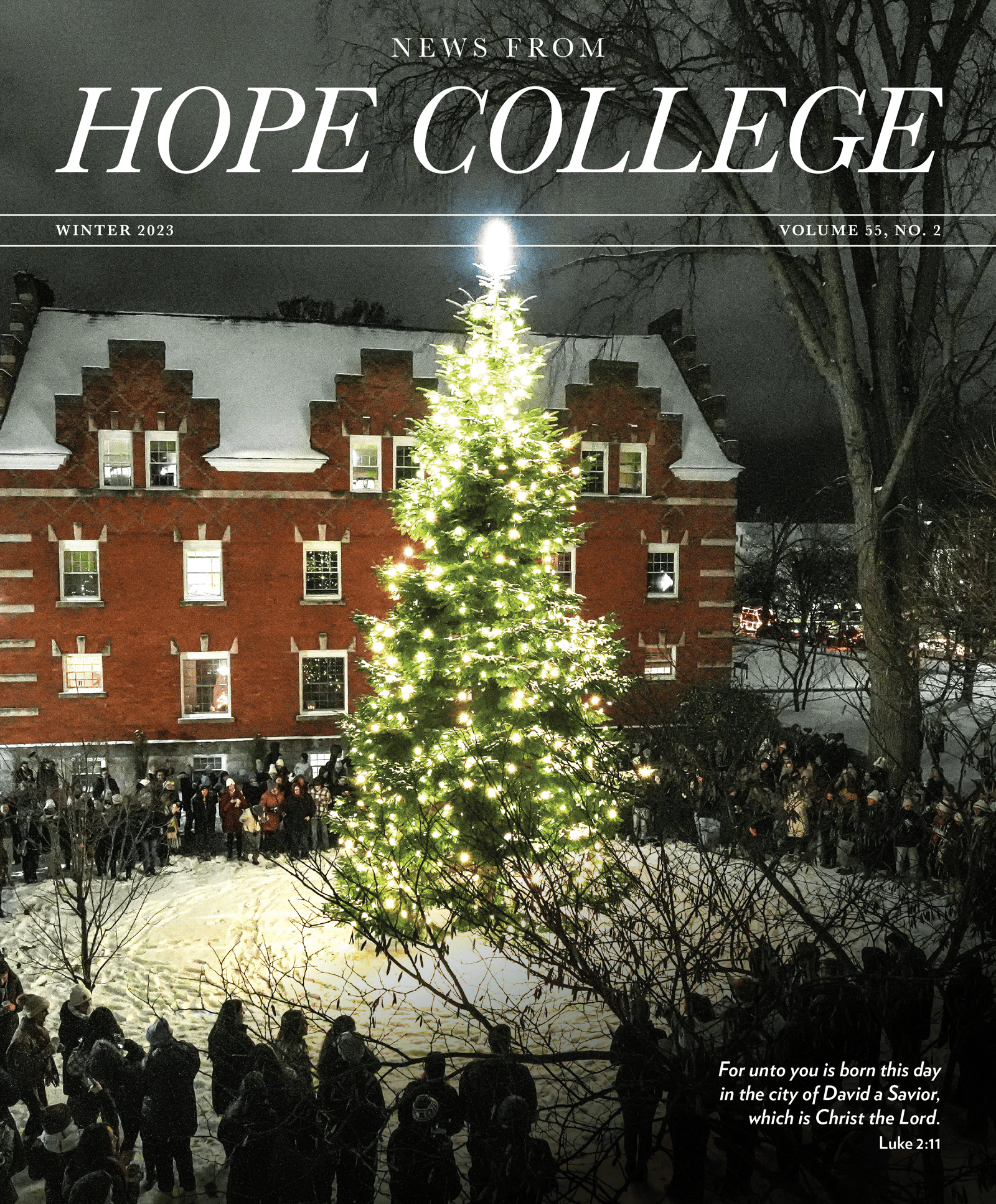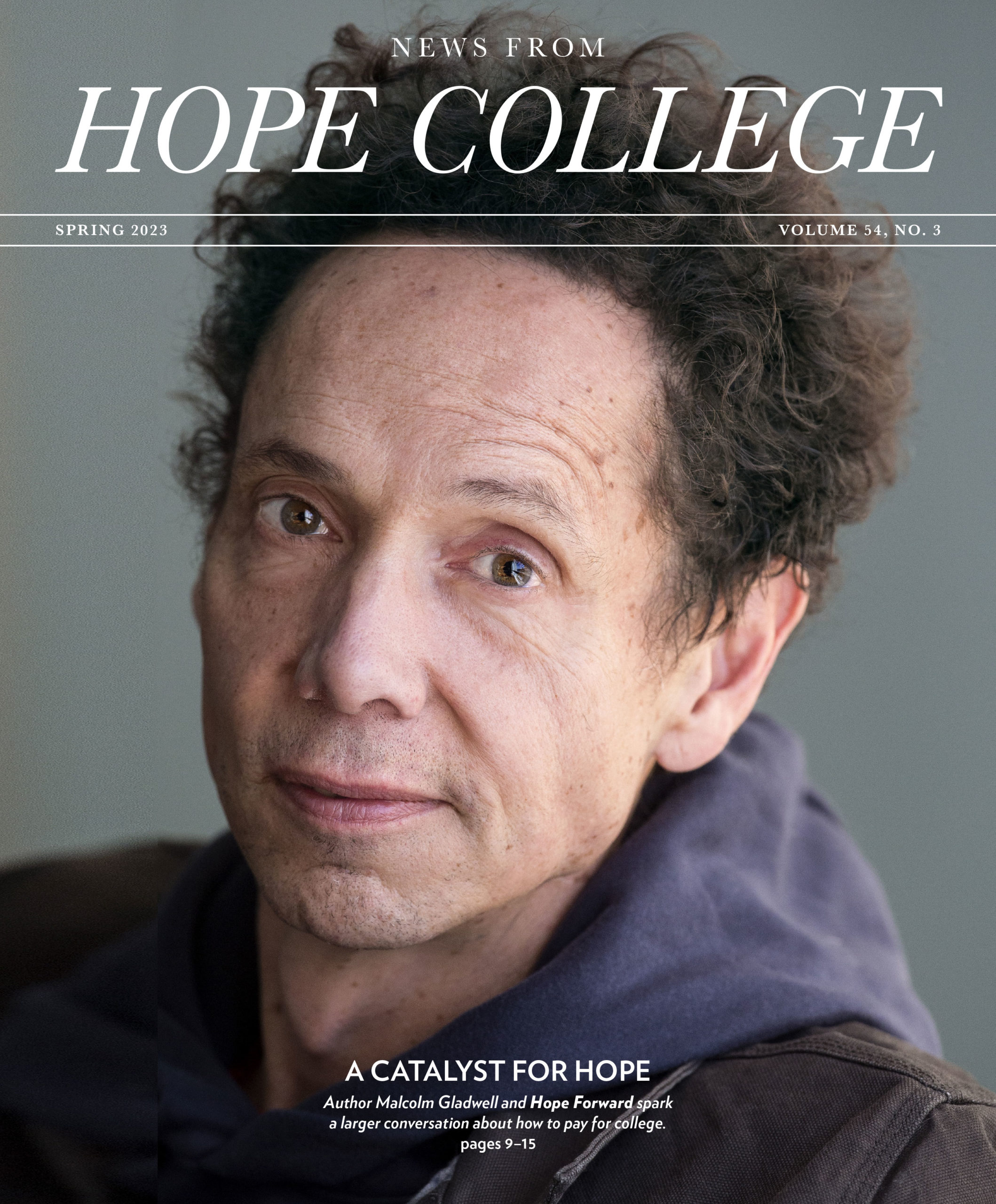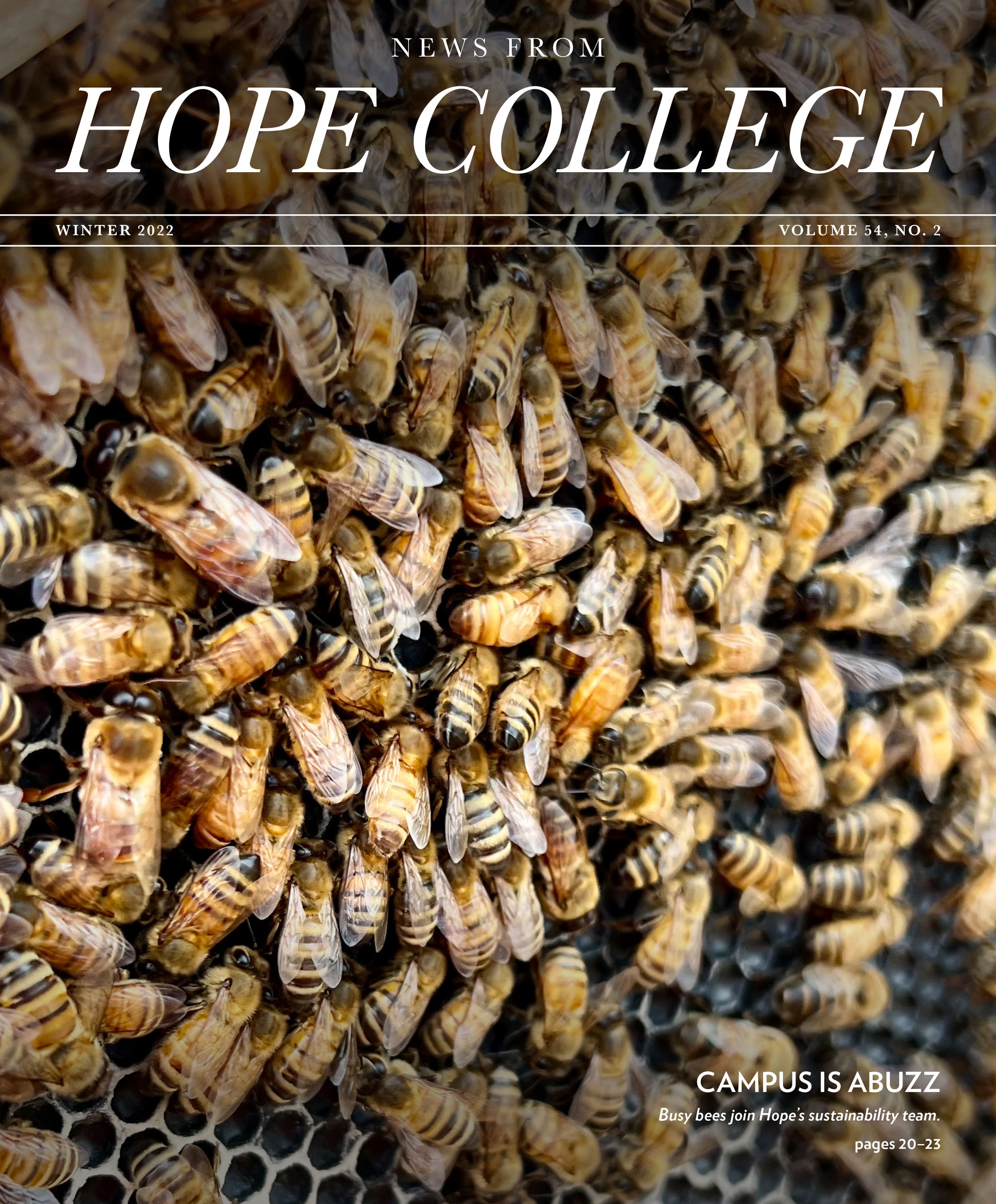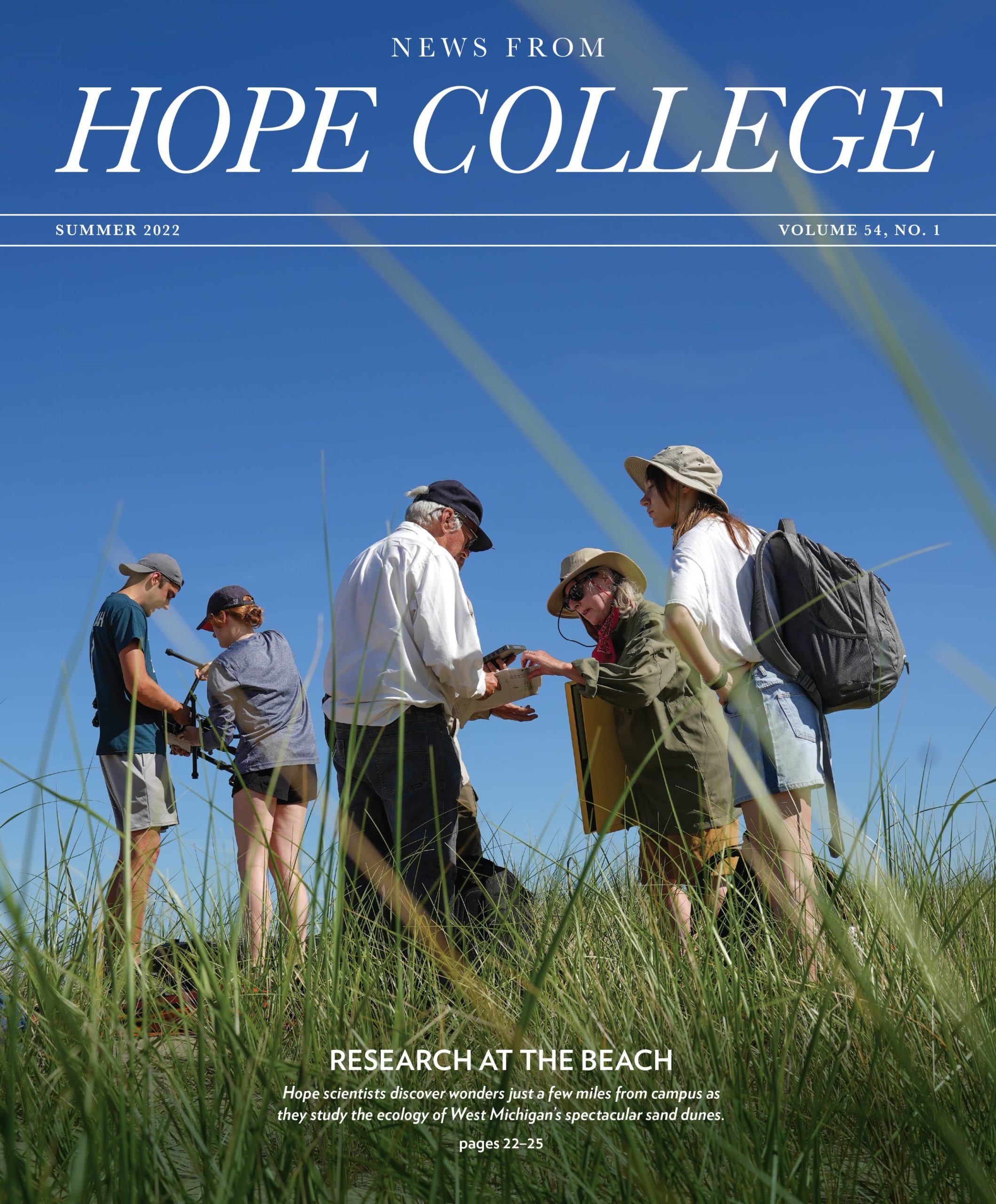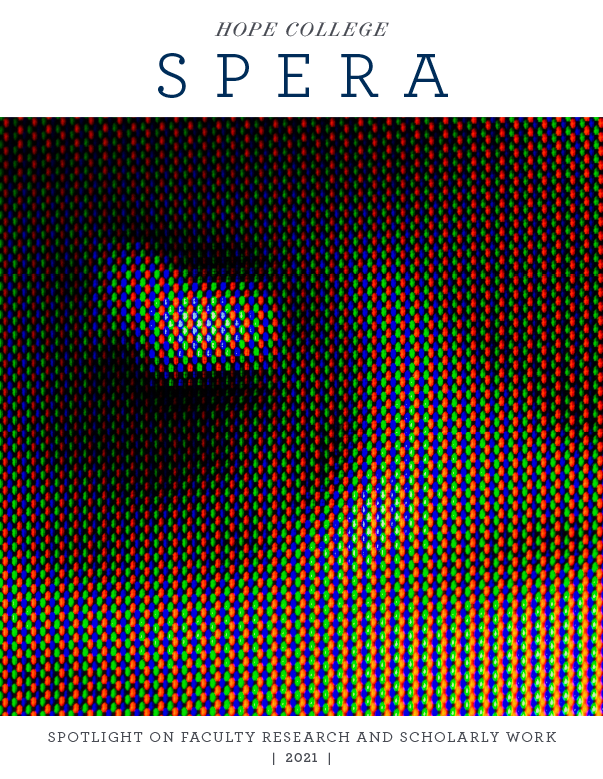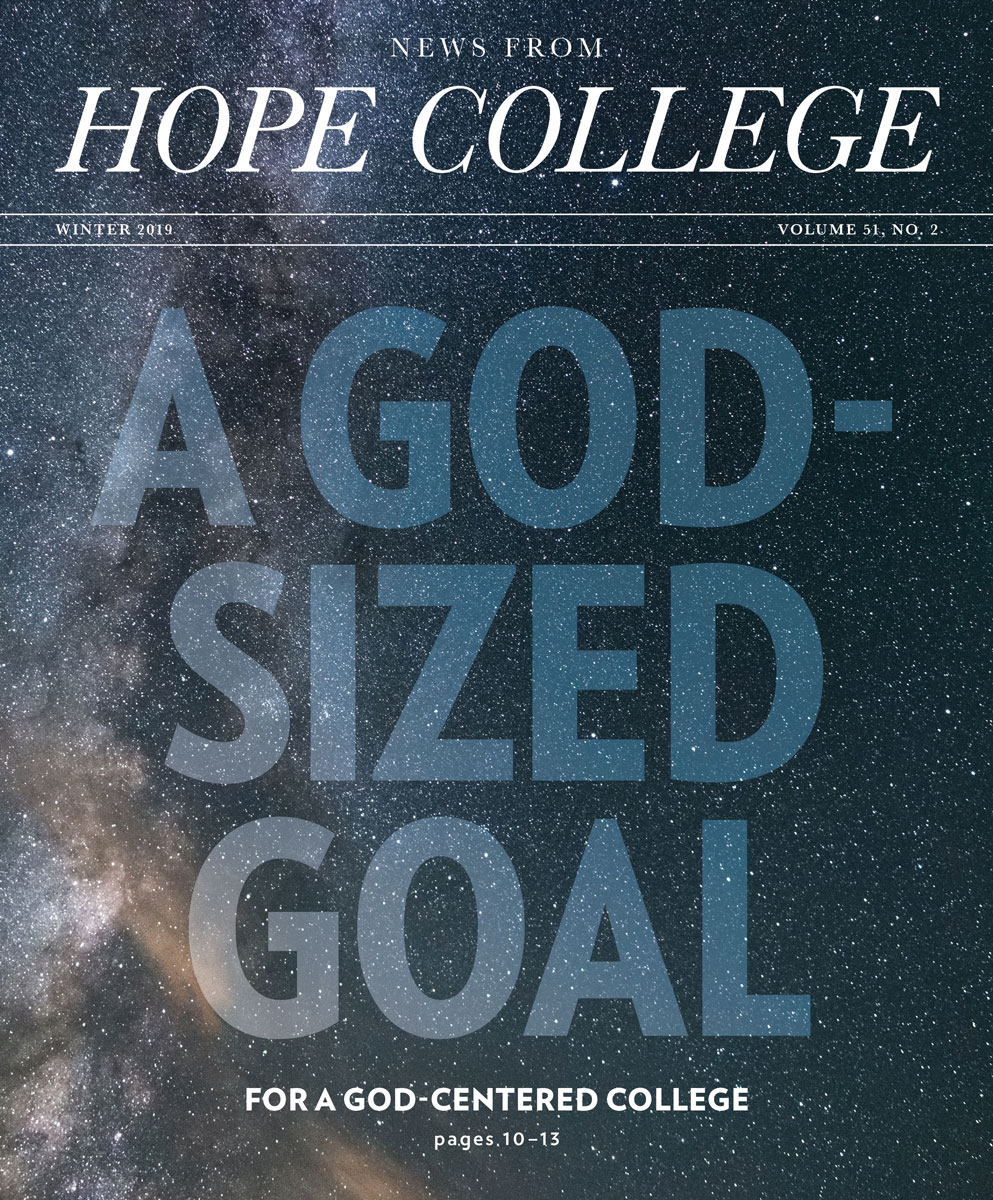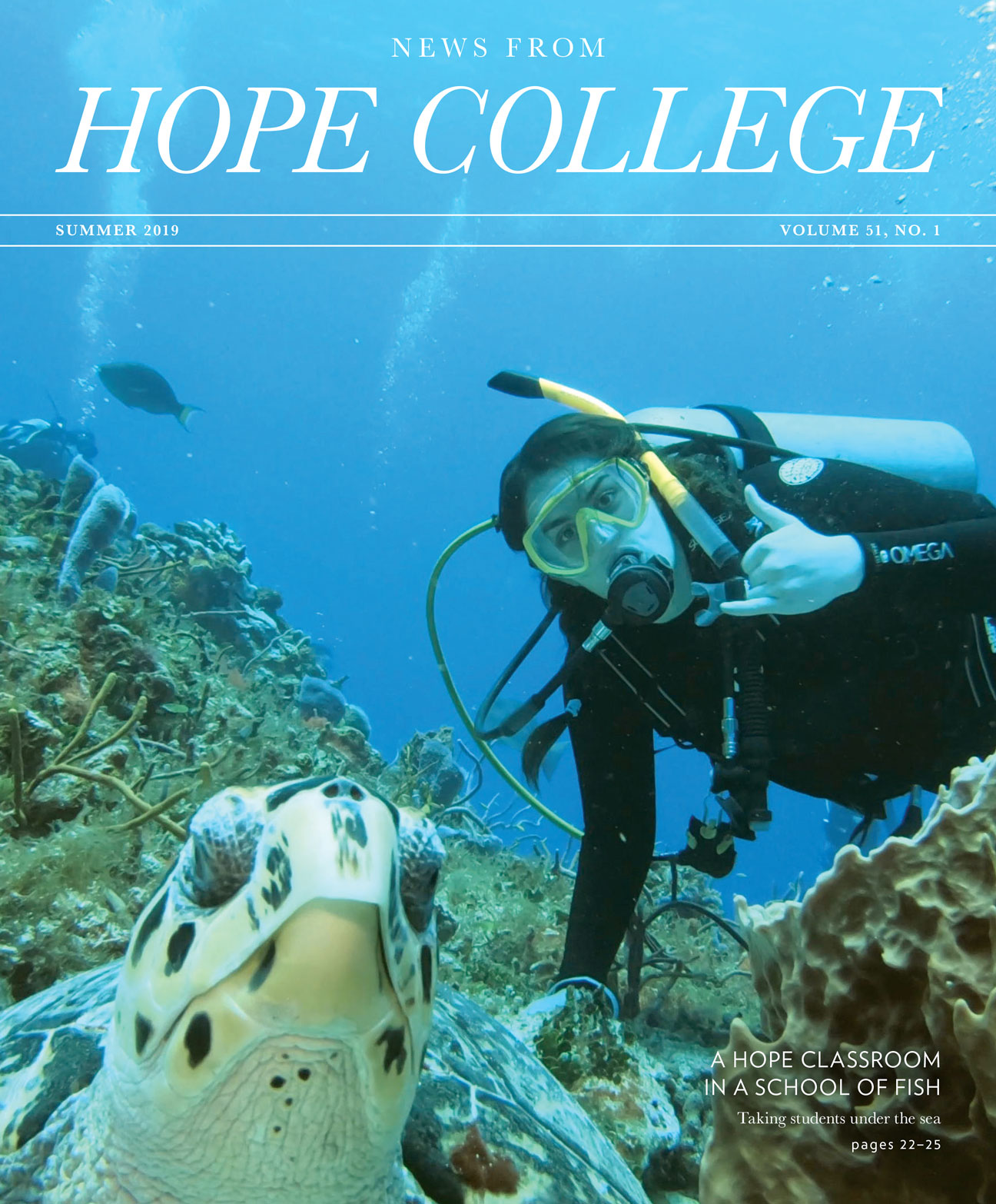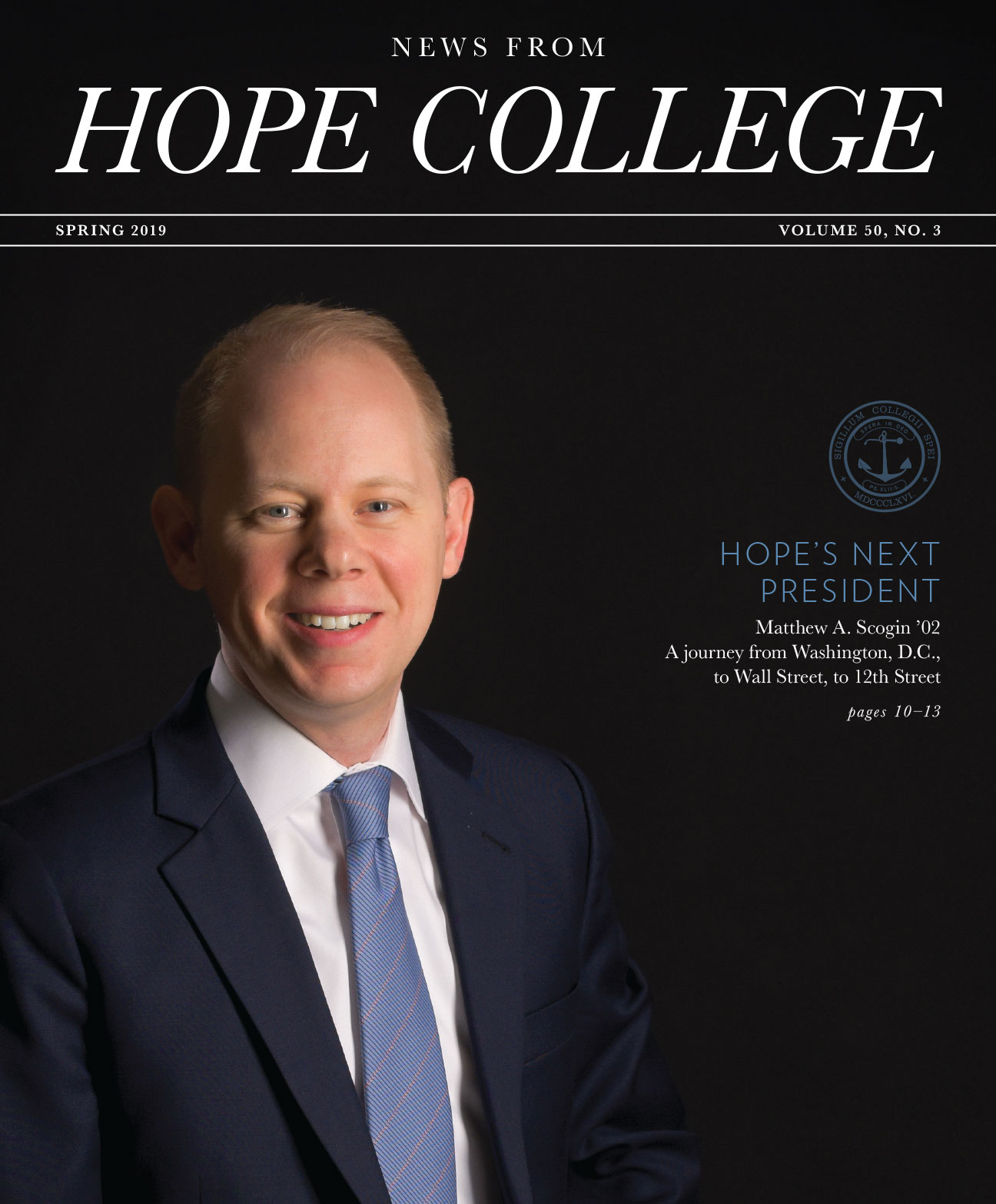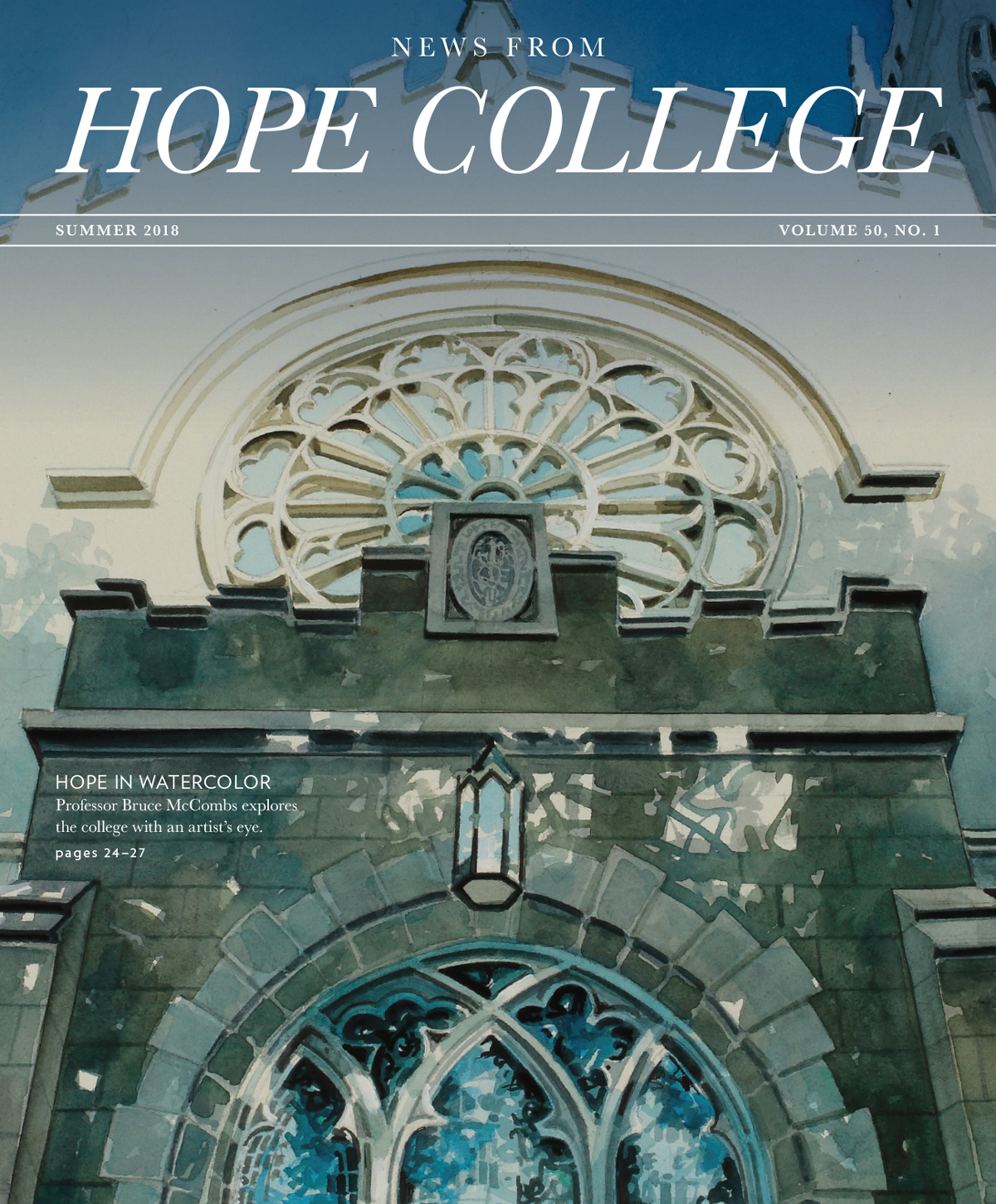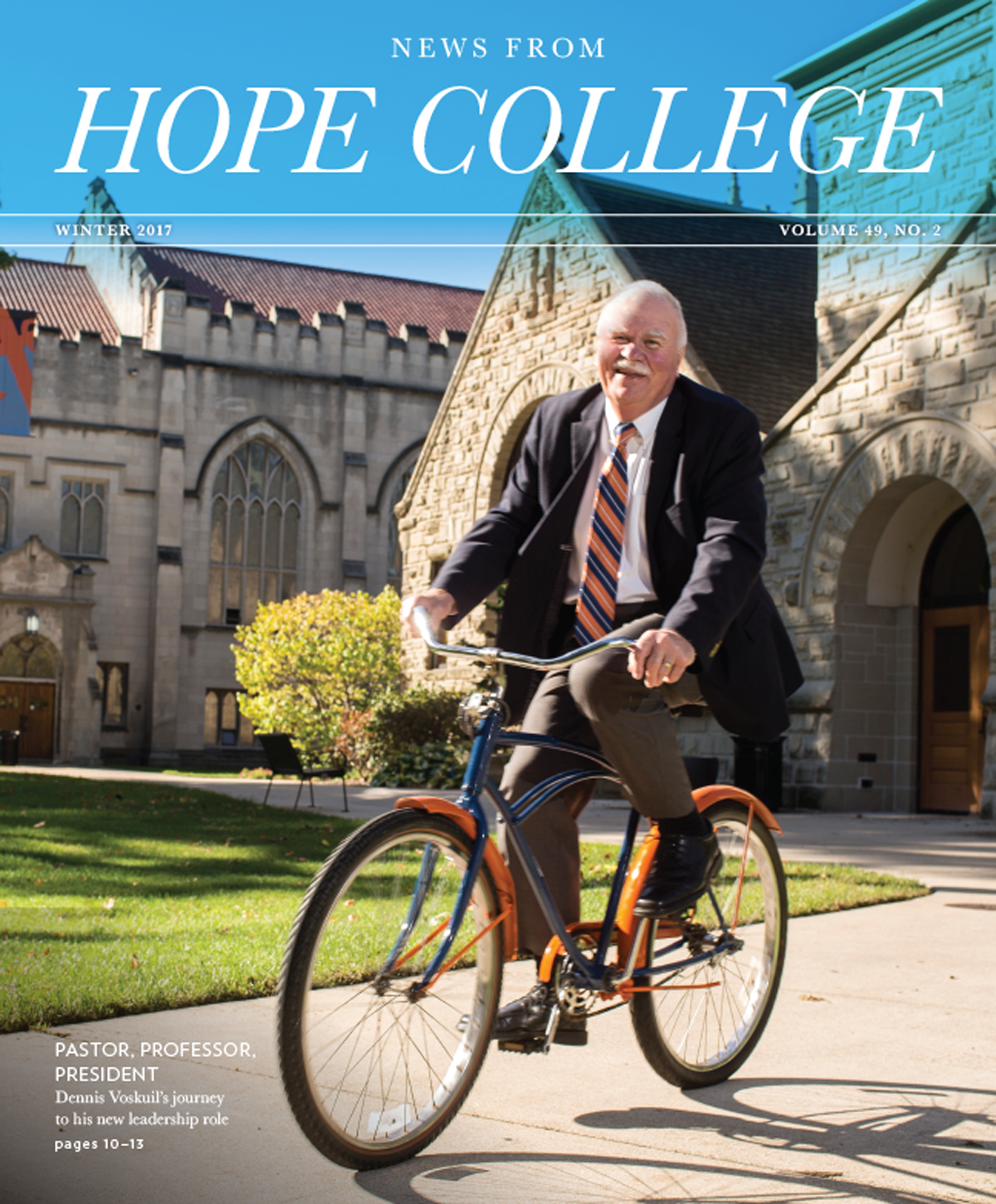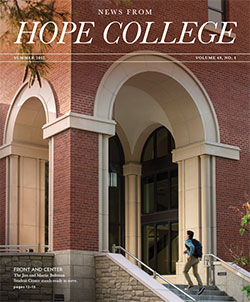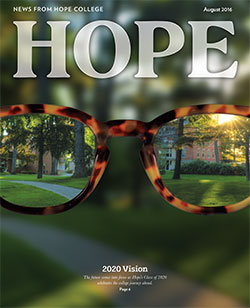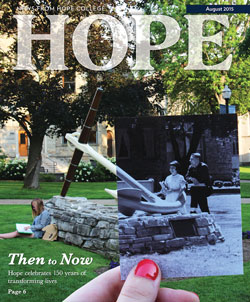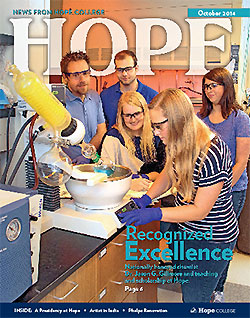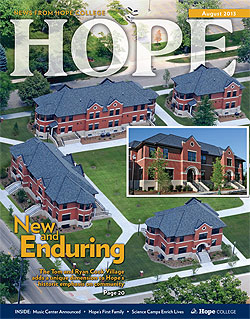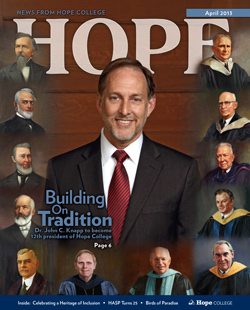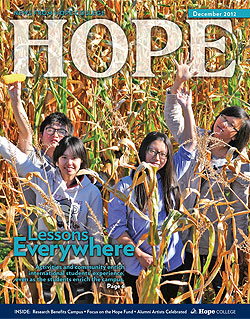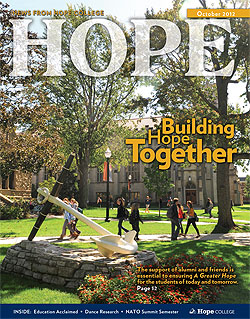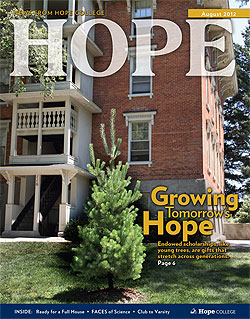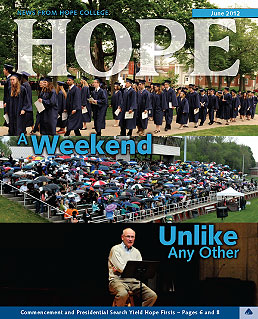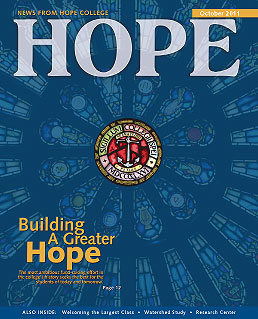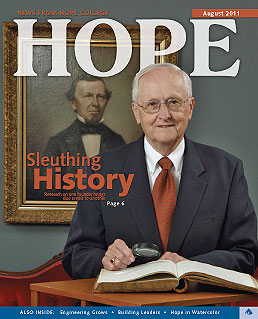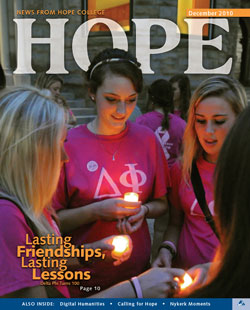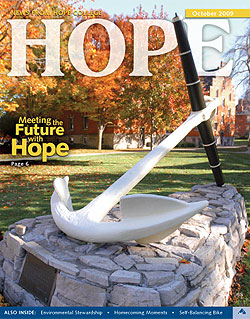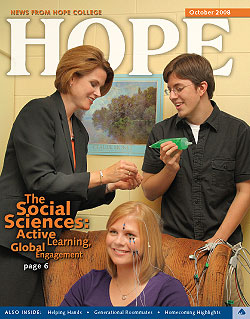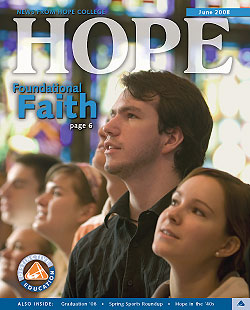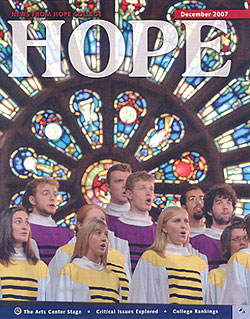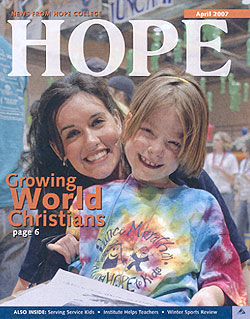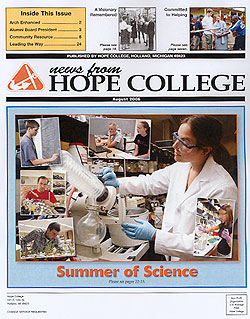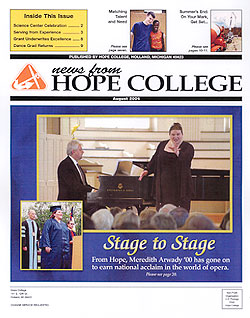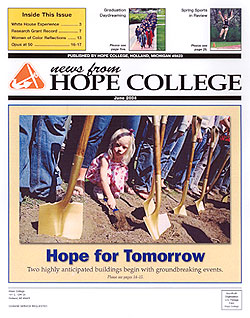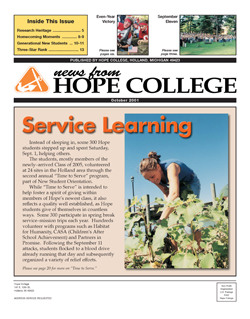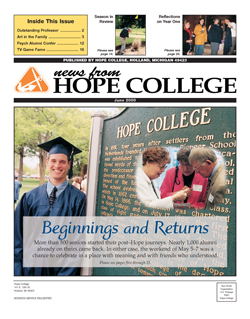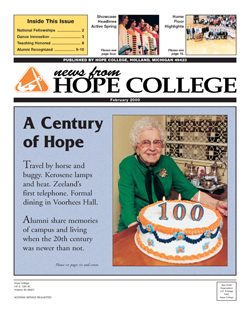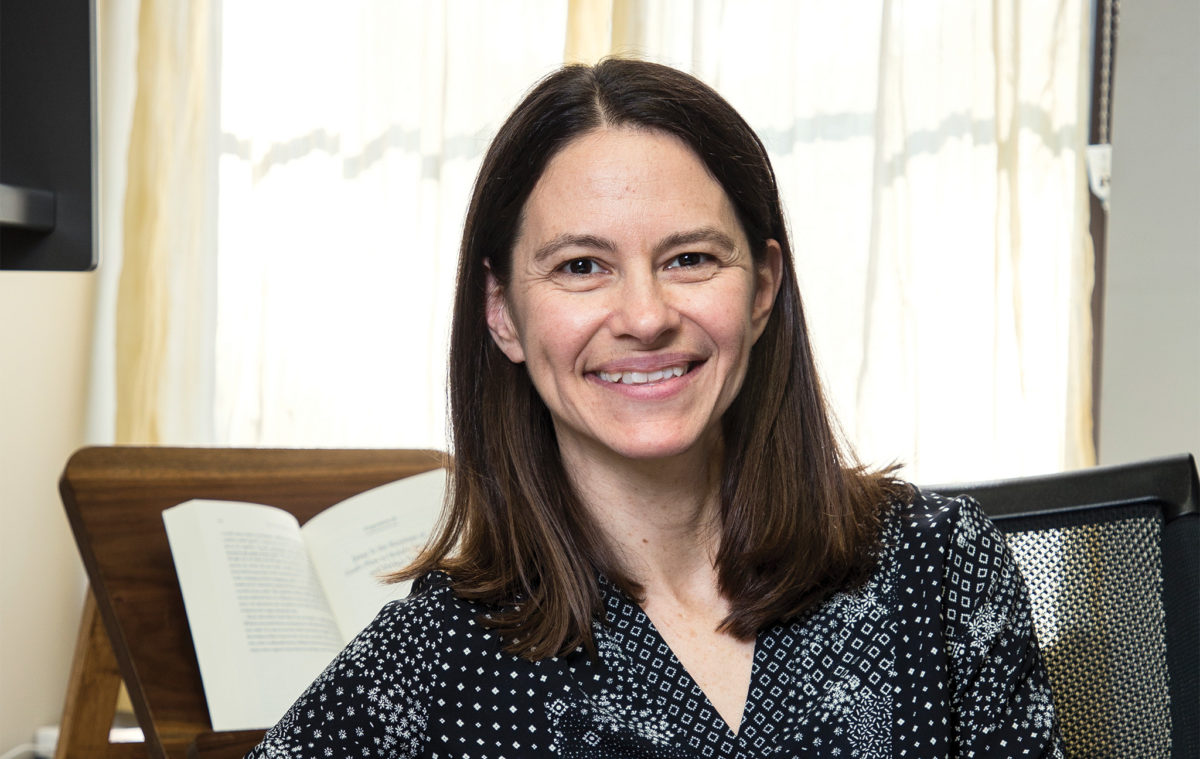How Sanctification Works
Angela Carpenter, Ph.D. | Assistant Professor of Religion
“From the moment of birth the human person is becoming.”
This first line of Dr. Angela Carpenter’s Responsive Becoming: Moral Formation in Theological, Evolutionary, and Developmental Perspective sets up an interdisciplinary exploration of how we go about “becoming.”
One essential element is moral formation, and it’s this aspect of the human experience that Carpenter focuses on in her 2019 book published by T&T Clark as part of its Enquiries in Theological Ethics series.
“In terms of theological discourse and in Christian ethics, most people who talk about moral formation are talking about virtue ethics,” Carpenter says. Fewer scholars are talking about sanctification, which Carpenter admits is “an old-fashioned word” for a doctrine which teaches, from a Reformed perspective, that “our moral transformation — our transformation into the image of Christ — is a work of God’s grace.”
Carpenter suspects that scholarly and Christian discomfort with the doctrine of sanctification stems from the apparent mysteriousness of the concept, and a misunderstanding of the Holy Spirit as something similar to “a fairy godmother waving a wand.” From this errant (but common) perspective, sanctification “takes place apart from our sense of our lives and who we are in our communities.”
If this conception of sanctification as something that happens to us isn’t entirely correct, though, neither is virtue ethics, which attributes moral transformation to a person’s own agency, through a process of habituation. As Carpenter expresses it, “I might not feel like doing the right thing right now, but if I can just force myself to do the right thing over and over and over again, I’m going to instill a new habit. I’m going to become a new person.”
In short, there are two perspectives about how moral formation actually works: that it’s entirely from the outside, a gift of grace divorced from human effort; or that it springs entirely from within, dependent on human will to form new habits and muscle one’s way into virtuous maturity.
Carpenter is quick to clarify that she doesn’t see her project as anti-virtue. “There are aspects of virtue that I do find really helpful in thinking about Christian ethics and transformation,” she says. Rather, she sees it as “a sort of shift in the center of gravity.”
“Sanctification is a work of God’s grace, yes,” she says — “but it also takes place in a human person. So how can we bring these two together?”
“When you really dive in and look at what sanctification is in the nuts and bolts, it actually, I think, is something that fits more in our sense of who we are, as human beings, than we would have anticipated before. The doctrine of sanctification has something to contribute that virtue theory deemphasizes, or doesn’t contribute.”
In Responsive Becoming, Carpenter looks at three influential theologians: John Calvin, John Owen and Horace Bushnell. But because moral formation cannot be divorced from human nature and human transformation, she takes an interdisciplinary approach to thinking deeply about who we are as human persons.
Her book includes findings of evolutionary anthropology, which she characterizes as a way of thinking about the history of how humans change over time, and hence a source of insights about who we are today. She integrates developmental psychology, too, and finds in it a particularly helpful model for the formation of children through their parents’ care.
“I noticed a striking similarity between the way John Calvin talks about sanctification and the way developmental theorists who are engaging a lot of the evolutionary research are talking about human formation,” she says.
Carpenter sums up theologians’ shared understanding like this: “Human formation is relational, and it is grounded in love.”
“Calvin talks about the core of sanctification as the recognition that God is a loving father,” she says. “Developmental psychologists have really emphasized the early stability of the parent-child relationship as crucial for everything that follows. If children don’t receive the care, stability and unconditional love that they need early on, that sets up a really bad life trajectory.”
A child’s development into mature adulthood is among the clearest examples of this sort of relational context for moral formation, in which the child “becomes” in response to the love of others. In this way, Carpenter notes, we can begin to see how sanctification is not something that simply happens to us, from outside of us — but takes place within the context of a meaningful and loving relationship.
“What Calvin is describing in sanctification is essentially a life that’s transformed through fellowship with God in Christ. This is something that is not entirely mysterious (though when we are talking about God we are always talking about mystery to some extent). But it is intelligible or recognizable as a human process,” Carpenter says.
“Sanctification is not something that’s passive, where God does everything and the human person just sits here and does nothing. It’s relational. It’s responsive.”
Carpenter has begun another book from an interdisciplinary perspective; she’s building on some of the same ideas to consider the relationship between social ethics and the doctrine of grace. “A lot of critics of Protestant ethics have said that it tends toward passivity or inaction,” she says. “But I want to say that the Protestant, particularly Reformed, doctrine of grace implies its own social ethic.” Her 2019 work on this project was supported by a grant from the John Templeton Foundation. Her book in progress has the working title Social Ethics and Graced Identity and is under contract with Baker Academic.
In a related essay, “Independent Reason, Faith, and a Distinctively Human Wisdom,” Dr. Carpenter explores how it can be helpful for theology and science to engage one another. Read it online.

